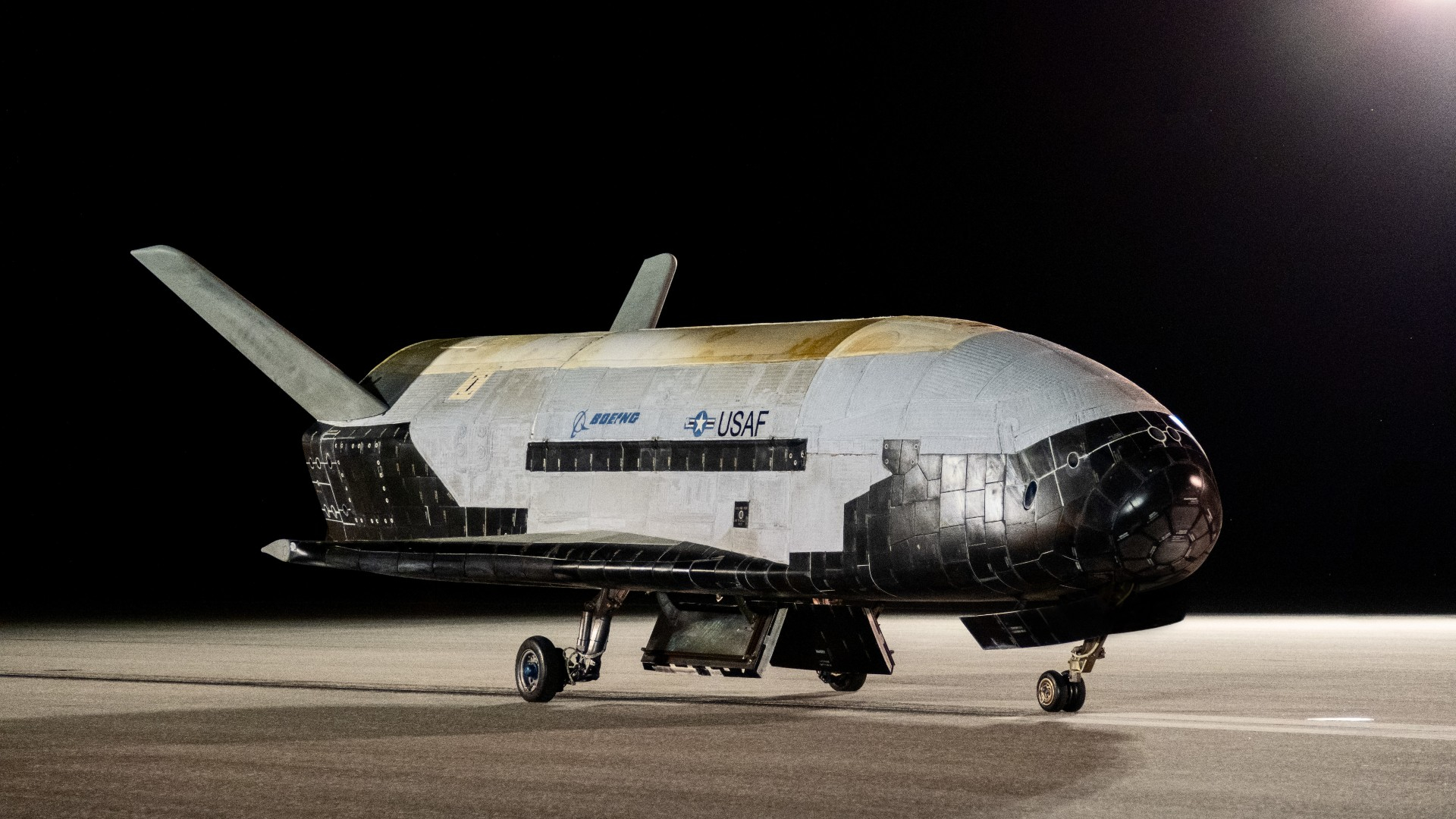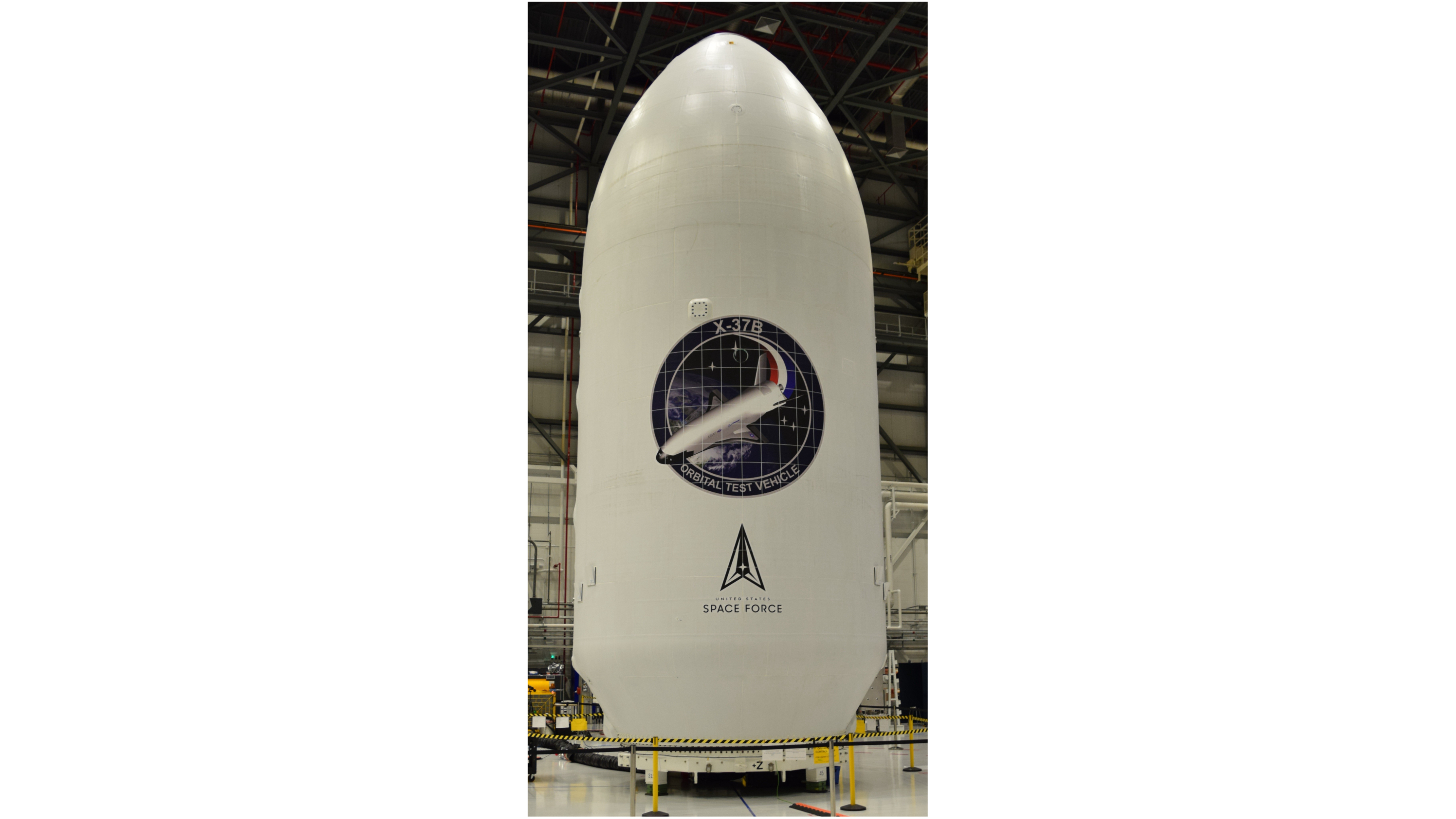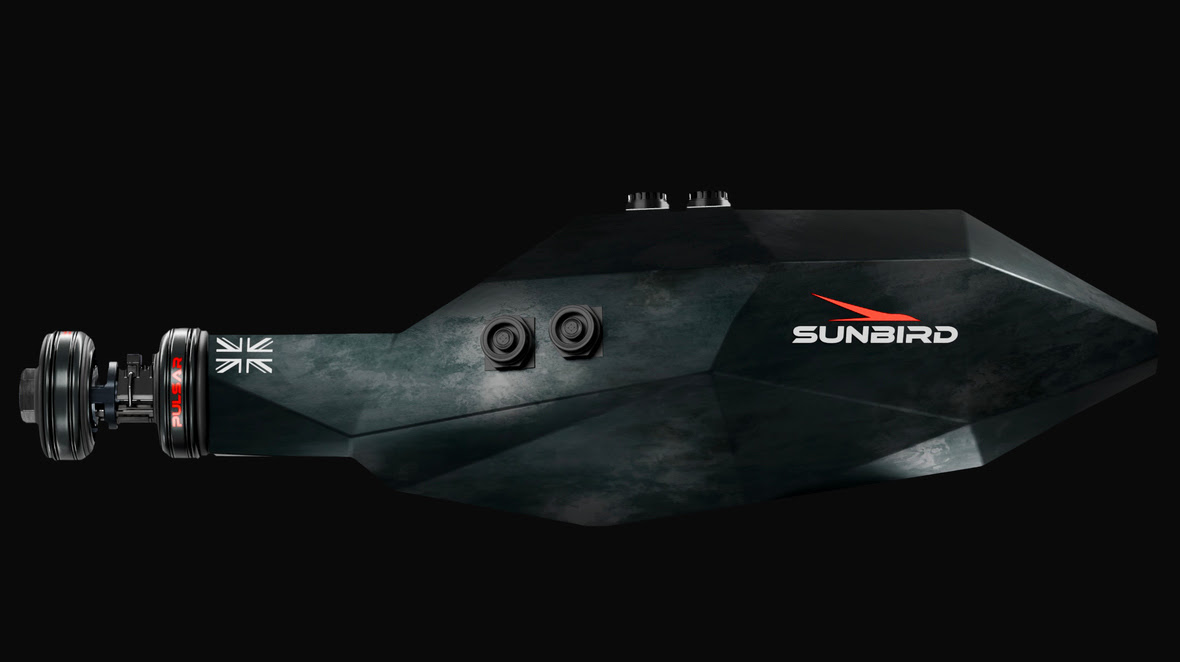
Update for Dec. 13: SpaceX will delay the launch until an undisclosed date "to perform additional system checkouts," the company posted on X (formerly Twitter). Keep watching Space.com for updates.
The U.S. Space Force's mysterious X-37B space plane is just about ready to take flight for the seventh time.
The Space Force and SpaceX "are making final preparations" for the planned Wednesday (Dec. 13) evening launch of the robotic X-37B, Space Force officials said in an emailed update Dec. 7.
The space plane is scheduled to lift off atop a Falcon Heavy rocket from NASA's Kennedy Space Center in Florida during a window that opens at 8:13 p.m. EST (0113 GMT on Dec. 14). If SpaceX webcasts the launch as expected, you'll be able to watch the action live here at Space.com.
The launch was delayed from past opportunities on Sunday (Dec. 10) due to weather, and Monday (Dec. 11) due to a ground issue. The new launch window was announced Tuesday (Dec. 12) by Space Force.
Related: SpaceX will launch the Space Force's mysterious X-37B space plane on a Falcon Heavy rocket
The Space Force is believed to possess two X-37B vehicles, both of which were built by Boeing. The space planes look a lot like NASA's old space shuttle orbiters, but they're much smaller; both X-37Bs could fit inside the payload bay of a single space shuttle.
Get the Space.com Newsletter
Breaking space news, the latest updates on rocket launches, skywatching events and more!
The two X-37Bs have flown a total of six missions to date, each one longer and more ambitious than the last. The most recent one, known as OTV-6 (Orbital Test Vehicle-6), touched down in November 2022 after circling Earth for 908 days.
It's unclear how long the coming flight, OTV-7, will last; the Space Force releases few details about X-37B missions, as most of their payloads are classified. Some of this gear is likely to be novel reconnaissance instruments; military officials have long said that the X-37B is used primarily as a testbed for new technologies.
But the X-37B carries up some civilian research cargo as well. For example, one of the unclassified experiments going up on OTV-7 is Seeds-2, a NASA project that will test how seeds are affected by long-term exposure to space radiation.

The first five X-37B missions launched atop United Launch Alliance Atlas V rockets, and the most recent one flew aboard a SpaceX Falcon 9. OTV-7 will be the first to use the powerful Falcon Heavy.
The Heavy has eight missions under its belt to date. It last launched in October, sending NASA's Psyche spacecraft toward the bizarre metal asteroid of the same name.
This story was updated at 12:15 p.m. EDT Dec. 12 with the new launch window.
Join our Space Forums to keep talking space on the latest missions, night sky and more! And if you have a news tip, correction or comment, let us know at: community@space.com.

Michael Wall is a Senior Space Writer with Space.com and joined the team in 2010. He primarily covers exoplanets, spaceflight and military space, but has been known to dabble in the space art beat. His book about the search for alien life, "Out There," was published on Nov. 13, 2018. Before becoming a science writer, Michael worked as a herpetologist and wildlife biologist. He has a Ph.D. in evolutionary biology from the University of Sydney, Australia, a bachelor's degree from the University of Arizona, and a graduate certificate in science writing from the University of California, Santa Cruz. To find out what his latest project is, you can follow Michael on Twitter.









